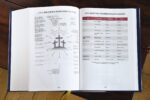What the Psalms Say About Jesus

Given the amount of space New Testament authors give to quoting or alluding to the Psalter to comment on the life, death, and resurrection of Jesus, it might seem obvious to affirm that the Psalms (at least many of them) speak of Christ. Yet how the Psalms speak of Christ is a key question for consideration. Do the Psalms speak of Christ prophetically? Or do they more often than not speak of Christ typologically, with the Psalmist’s situation or status paving the way for understanding the coming Messiah?
It is important to remember that the Psalms are not written in the literary form of prophetic literature but in the form of song. Both these genres are primarily poetic (with the Psalms exclusively so), but they differ in their purposes. The Psalms were composed to express the full range of emotions of a life lived in faith before God, from lament to trust to praise. They reveal truth about God and about humanity.
A primary way the Psalms point ahead to the coming Messiah is through their idealized portrait of Israel’s king, often with a focus on the Davidic dynasty (18:50; 132:10–11). This portrait emerges primarily in a set of Psalms identified as “royal Psalms.” The picture of this prototypical king extends from his enthronement (e.g., 2:6; 110:1) to his just and merciful rule (e.g., 45:4; 72:1–4, 12–14) to his victories in battle because of God’s blessing (18:50; 21:1; 110:5). This idealized figure trusts in the Lord and is utterly faithful to him (21:7; 101:2–4). This idealization of a Davidic king provides the Messianic raw material for NT writers, who often draw upon these royal psalms to show how Jesus, as Messiah, is the ultimate and unique Davidic king (Mt 22:44; Ac 13:33; Heb 1:13).
Another way the Psalms point to Jesus as Messiah is through their laments about unjust suffering. Quite a number of psalms highlight the suffering of an innocent individual, with the psalmist calling on God to come to his aid, especially given his blamelessness (e.g., Ps 22; 26). New Testament authors draw upon this category of psalms for their own portraits of Jesus as the consummate person who endures unjust suffering and throughout remains faithful to God (e.g., Ps 22 in Mt 27:38–46; Heb 2:12; and Ps 31:5 in Lk 23:46).
##############################
Content adapted from the NIV Study Bible, Fully Revised Edition which answers your pressing questions with just the right amount of information, placed in just the right location. With its decades-long legacy of helping readers grasp the Bible’s meaning, the NIV Study Bible embodies the mission of the NIV translation to be an accurate, readable, and clear guide into Scripture.



















